Library Resources
Databases and Internet Sites
For those who have never taken classes at a college level, instructors at this level usually want students to use a scholarly (this usually means written by a person with a doctorate degree or expertise in an area) books and articles preferably peer reviewed (this means others in the same field who have advanced degrees preferably doctorate degrees read the paper to make sure it is a scholarly accurate paper). The following is a list of databases and websites which have a great deal of scholarly and peer reviewed. You will not find Google in the list because for students just entering college, they do not have the skills to differentiate a scholarly article from one that is not. There is a lot of misinformation on Google, Bing, the Chinese equivalent Baidu, or any of the other general search engine. For undergraduates, the first two entries are the most important.

EBSCO
Google Scholar
Open Access Digital Theological Library
Open Access Directory of Journals
Open Access Directory of Books
Google Book Search
BASE
The SUM OPAC System
CiteSeerX
Microsoft Academic
FullBooks.com or FullBook.net
Other Websites
Please check with your instructor to see if they will allow you to use these sites.
| Christian Classics Ethereal Library | Christian Classics Ethereal Library exists for Bible college students. They offer a browser friendly library of many of the classic Christian books. |
| Studylight.org Hebrew Lexicon | This has three Hebrew interpretations of a word. One of these is Thayers. This is public domain and so the book this site uses was published before the 1930s. |
| Perseus Digital Library | Classics in Greek, Latin and Hebrew with some English translations, and an interactive lexicon/parsing tool. Classical histories like Cassius Dio are very useful for Acts and general New Testament. |
| The Post-Reformation Digital Library | A select database of digital books relating to the development of theology and philosophy during the Reformation and Post-Reformation/Early Modern Era (late 15th-18th c.). Late medieval and patristic works printed and referenced in the early modern era are also included. |
| Theology on the Web | A free, high quality theological resource out of the United Kingdom for Bible teachers, scholars, and pastors to spread the Gospel in their countries. There are over 20,000 rare and out-of-print articles available for free download, detailed bibliographies for Seminary level students and ministers, and a single cross-linked resource made up of seven websites. |
| Bible Geo Coding | Take Google maps and superimpose Bible maps and you have an incredible site to help students see and understand the geography of the Bible. |
| Hartford Institute of Religion Research | This is a cite where you can find a lof information of churches and denominations in the U.S. |
| ARDA (Association of Religion Data Archives) | This is an excellent scholarly site for theological surveys etc. |
| http://hirr.hartsem.edu/ | This site is more geared towards those doing research in the area of religion and culture. This means it is more for those in graduate programs |
| CIA Fact-Book | One of the best places to get basic information about the world. A massive central data source and a handy way to graphically compare nations. |
| Chabad.org | This is the oldest Jewish site on the internet. This is a good place to get information about the Jewish history and culture. |
| Britannica Online Encyclopedia | This is a good source for learning about a subject since only those who are experts in that subject can write about the topics. Due to it being a subscription site, you will not be able to see all the information available and so not as in depth. This is considered secondary and tertiary reference source and should not be used as a primary source in a paper. As with any secondary source you are putting in your paper, check with the instructor. |
| Wikipedia | This is a good site to learn about a new topic that you are unfamiliar with. Wikipedia is different than Britannica in that anybody can put in their input and there are no length requirements. This means the level of expertise can vary greatly from one article to the next and the article can change daily. Depending who the authors are you can have a very short article to almost a treatise. This site you most definitely need to talk to your teacher if you are considering in using this as a secondary source in your paper since many instructors do not allow students to use this site in papers. |
| Internet History Sourcebooks (Fordham University) | Numerous historical documents which prove to be useful in World Religions courses, Biblical Studies, and Apologetics. There is a search box but it is recommended to use the Ancient History subject headings on the left side of the screen for better results. Not an easy site to use. |
| Bible.org | Bible.org, an evangelical site, is known for its articles on various Christian topics. Depending on the author, the article can be at the layman’s level but more often than not most of the articles are written by scholars but rarely are there references. Without references, instructors tend not to allow these articles but can give some insight into the topic. |
| Lumina.bible.org | This Bible.org’s Bible with the Greek and notes. Put the mouse over a word and will translate the Greek. |
| Studylight.org Greek Lexicon | This has three Greek interpretations of a word. One of these is Thayers. This is public domain and so the book this site uses was published before the 1930s. |
| Studylight.org Hebrew Lexicon | This has three Hebrew interpretations of a word. One of these is Thayers. This is public domain and so the book this site uses was published before the 1930s. |
| BibleGateway.com | This is not considered a scholarly site nor are the other sites mentioned. Most of these site’s reference materials are non-scholarly or out of date so if you want to use say the Lexicon, check with the instructor. Bible Gateway is usually the first site that will come up when Googling a verse. As with anything on Google that comes up first, it does not mean it is the best website it means it came up first (also check out Blue Letter, BibleStudyTools and Bible Hub interlinear). Bible Gateway has not just the English version Bibles but other languages such as Icelandic. It does not have all the tools such as a Lexicon as does other sites have. It also has a paid level as well. |
| BibleResources.org | This site, owned by an evangelical church. A feature that can be useful but all the articles are opinion is “What the Bible Says” section. These are answers to modern issues from a Biblical evangelical point of view such as vegetarianism and tattoos. Do not use this in papers. |
| E-Sword Bible Tool | A phenomenal resource that is free. Through this resource, you will be able to download many different translations of the bible, including Greek, Hebrew, and Latin; download maps and charts found within the bible; compare different translations, view commentaries, read books, have devotionals, and more! Much of the free material will be older and possibly out of date. Additional content can be downloaded onto e-sword through the download tab while running the e-sword program (you will have to close the program and open it again to view your downloaded content). |
Contact Us

Dr. Page Brooks
Librarian

Gary Averill
Assistant Librarian
Virtual Hours
Emails are constantly monitored. You will receive a reply within 24 hours during the weekdays and within 48 hours on weekends.



